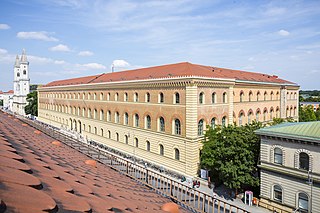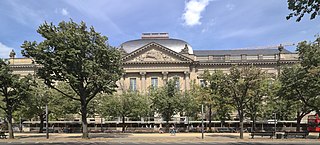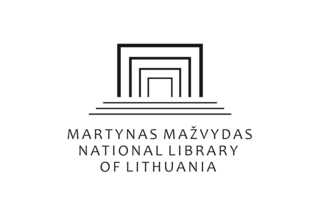
The Netherlands Music Institute (Nederlands Muziek Instituut, NMI) is the central institution for the preservation of the musical heritage of the Netherlands.

The Netherlands Music Institute (Nederlands Muziek Instituut, NMI) is the central institution for the preservation of the musical heritage of the Netherlands.
The NMI has existed as a foundation since 1996; it became fully independent in 2006. In that same year the NMI was designated ‘sector institute for musical heritage’ by the Ministry of Education, Culture and Science. It receives a subsidy from the municipality of The Hague and from the national government.
Historical roots of the NMI are the music archives and music library of the Gemeentemuseum Den Haag (Municipal Museum) in The Hague and the documentary collection of the Musica Neerlandica Foundation.
The library collection contains at present 140.000 titles, with focus on the history of music in the Netherlands, European music before 1900, and organology. Several major collections have been integrated into its holdings of sheet music; among them, that of the Théâtre Français de La Haye (700 scores with parts, printed before 1850), the Johann Alsbach collection of music published in the Netherlands (11.000 titles), the Frans Vester collection of flute music (4000 titles) and Willem Noske collection of violin music (27.000 titles). Besides numerous rare first editions the library contains a number of important manuscripts, including the Siena Lute Manuscript, Mozart's Galimathias Musicum K.32 and the so-called Frankenberg organ manuscript of Johann Gottfried Walther.
The archives collection contains archives of Dutch composers, performing musicians and musical institutions.

The Hague is a city and municipality of the Netherlands, situated on the west coast facing the North Sea. The Hague is the capital of the province of South Holland. The Hague is the country's administrative centre and its seat of government, and while the official capital of the Netherlands is Amsterdam, The Hague has been described as the country's de facto capital.

Leiden University is a public research university in Leiden, Netherlands. It was founded as a Protestant university in 1575 by William, Prince of Orange, making it the oldest institution of higher education in the Netherlands.

Leiden University Libraries is a library founded in 1575 in Leiden, Netherlands. It is regarded as a significant place in the development of European culture: it is a part of a small number of cultural centres that gave direction to the development and spread of knowledge during the Enlightenment. This was due particularly to the simultaneous presence of a unique collection of exceptional sources and scholars. Holdings include approximately 5,200,000 volumes, 1,000,000 e-books, 70,000 e-journals, 2,000 current paper journals, 60,000 Oriental and Western manuscripts, 500,000 letters, 100,000 maps, 100,000 prints, 12,000 drawings and 300,000 photographs. The library manages the largest collections worldwide on Indonesia and the Caribbean. Furthermore, Leiden University Libraries is the only heritage organization in The Netherlands with five registrations of documents in UNESCO's Memory of the World Register.

The Bavarian State Library in Munich is the central "Landesbibliothek", i. e. the state library of the Free State of Bavaria, the biggest universal and research library in Germany and one of Europe's most important universal libraries. With its collections currently comprising around 10.89 million books, it ranks among the leading research libraries worldwide. The Bayerische Staatsbibliothek furthermore is Europe's second-largest journals library. Furthermore, its historical holdings encompass one of the most important manuscript collections of the world, the largest collection of incunabula worldwide, as well as numerous further important special collections. Its collection of historical prints before 1850 totals almost one million units.

The Royal Library of the Netherlands is the national library of the Netherlands, based in The Hague, founded in 1798. The KB collects everything that is published in and concerning the Netherlands, from medieval literature to today's publications. About 7 million publications are stored in the stockrooms, including books, newspapers, magazines and maps. The KB also offers many digital services, such as the national online Library, Delpher and The Memory. Since 2015, the KB has played a coordinating role for the network of the public library. The KB's collection of websites as hosted by the former Dutch internet provider XS4ALL is on the Unesco documentary world heritage memory of the world. It is the first web collection in the world that has been granted this status.

The Berlin State Library is a universal library in Berlin, Germany and a property of the Prussian Cultural Heritage Foundation. Founded in 1661, it is one of the largest libraries in Europe, and one of the most important academic research libraries in the German-speaking world. It collects texts, media and cultural works from all fields in all languages, from all time periods and all countries of the world, which are of interest for academic and research purposes.

The Répertoire International des Sources Musicales is an international non-profit organization, founded in Paris in 1952, with the aim of comprehensively documenting extant historical sources of music all over the world. It is the largest organization of its kind and the only entity operating globally to document written musical sources. RISM is one of the four bibliographic projects sponsored by the International Musicological Society and the International Association of Music Libraries, Archives and Documentation Centres, the others being Répertoire International de Littérature Musicale, Répertoire international d'iconographie musicale, and Répertoire international de la presse musicale.

The Royal Conservatory of Brussels is a historic conservatory in Brussels, Belgium. Starting its activities in 1813, it received its official name in 1832. Providing performing music and drama courses, the institution became renowned partly because of the international reputation of its successive directors such as François-Joseph Fétis, François-Auguste Gevaert, Edgar Tinel, Joseph Jongen and Marcel Poot, but more because it has been attended by many of the top musicians, actors and artists in Belgium such as Arthur Grumiaux, José Van Dam, Sigiswald Kuijken, Josse De Pauw, Luk van Mello and Luk De Konink. Adolphe Sax, inventor of the saxophone, also studied at the Brussels Conservatory.

The Moravian musical tradition in United States began with the earliest Moravian settlers in the first half of the 18th century.
These Moravians were members of a well-established church – officially called Unitas Fratrum or Unity of Brethren – that by [the mid-18th century] had already seen almost three centuries of rich experience of religious life. They were spiritual descendants of the Czech priest Jan Hus, who for his attempts at reform was martyred in 1415. Forty-two years later in 1457, some of his followers founded a church body consecrated to following Christ in simplicity and dedicated living.
This newly constituted church developed a rich and orderly ecclesiastical life in the 15th and 16th centuries, but in the Thirty Years War of 1618-48 it was virtually wiped out. In the 1720s a few exiles of this religious heritage, along with various other seekers after truth, found refuge on an estate of a Saxon nobleman named Nicholaus Ludwig von Zinzendorf. There in their village of Herrnhut the ancient church experienced a rebirth culminating in a spiritual blessing on August 13, 1727, in which their former diversity of purpose was welded into one.
In a brief five years, by 1732, that first little village of the Renewed Moravian Church began sending missionaries to all corners of the world. After establishing work in England, the Moravians sent colonists to America in 1735. The initial settlement in Georgia proved unsuccessful, partly because of war between Protestant England and Catholic Spain to the south in Florida. More permanent work was established in Pennsylvania in 1741, with the town of Bethlehem as their chief center. Other settlements in Pennsylvania followed. The Moravians purchased 100,000 acres in North Carolina and settled at Bethabara in 1753 with the central town of Salem being founded in 1766.” [Villages of the Lord]

Martynas Mažvydas National Library of Lithuania is a national cultural institution which collects, organizes and preserves Lithuania's written cultural heritage content, develops the collection of Lithuanian and foreign documents relevant to research, educational and cultural needs of Lithuania, and provides library information services to the public.

The Gruuthuse manuscript is a medieval compilation, the oldest core of which is dated about 1395, while the youngest unfinished contributions date from around 1408. The manuscript is the only known source for a large number of Middle Dutch texts.

The Biblioteca Nacional de Portugal is the Portuguese national library.

The National Library of Moldova located in Chişinău, Moldova is the main library of the state which is responsible for conservation, valorization and protection of written cultural heritage. The National Library operates according to the guiding principles of UNESCO referring to this type of libraries, it is part of the European Digital Library. Founded in 1940, it traces its roots to the Gubernatorial Public Library of Bessarabia established in 1832. At present, the National Library is one of the objectives with great value of the national patrimony and presents the treasure written and printed cultural heritage of the country. Library ensures wide public access to its collections for research, study and / or information. The Director General is Elena Pintilei.

The Nationaal Archief (NA) is the national archives of the Netherlands, located in The Hague. It houses collections for the central government, the province of South Holland, and the former County of Holland. There is also material from private institutions and individuals with an association to the Dutch government or the political or social history of the Netherlands. The Nationaal Archief holds the Archives of the Dutch East India Company from 1602–1811, which were, along with related records held by South Africa, India, Sri Lanka and Indonesia, inscribed on UNESCO's Memory of the World Programme Register in 2003 in recognition of their historical value. Recently, the photographic archives of Spaarnestad Photo were included in the Nationaal Archief. It has been announced that Wikipedia will receive user rights over many photos from these archives.

Europeana is a web portal created by the European Union containing digitised cultural heritage collections of more than 3,000 institutions across Europe. It includes records of over 50 million cultural and scientific artefacts, brought together on a single platform and presented in a variety of ways relevant to modern users. The prototype for Europeana was the European Digital Library Network (EDLnet), launched in 2008.

The State Institute for Music Research is a musicological research facility in Berlin, Germany for the study of Musical Instruments, Music History, Music Theory and Music technology. It is an agency of the Prussian Cultural Heritage Foundation and operates the Berlin Musical Instrument Museum.

The National Library of Montenegro "Đurđe Crnojević" (NLM) is a public institution that preserves the written, printed and publications in other media published in Montenegro and abroad. As part of its own publishing production, NLM publishes retrospective and current Montenegrin national bibliography. NLM is the parent library to all libraries in Montenegro and the National Agency for the assignment of ISBN, ISSN, ISMN and other international bibliographic numbers, and for Cataloguing in Publication (CIP) for publishers in Montenegro. NLM "Đurđe Crnojević" was named after the 15th century ruler of Montenegro, who in 1493 established the first state printing house in the world and the second Cyrillic printing house in Europe. Since 2004, Jelena Djurovic has been the Director of the National Library.

The Baden State Library is a large universal library in Karlsruhe. Together with the Württembergische Landesbibliothek, the BLB is the legal deposit and regional library for Baden-Württemberg.
Franz Karl Hofmann, later Charles Hofmann was a Dutch musician and composer.